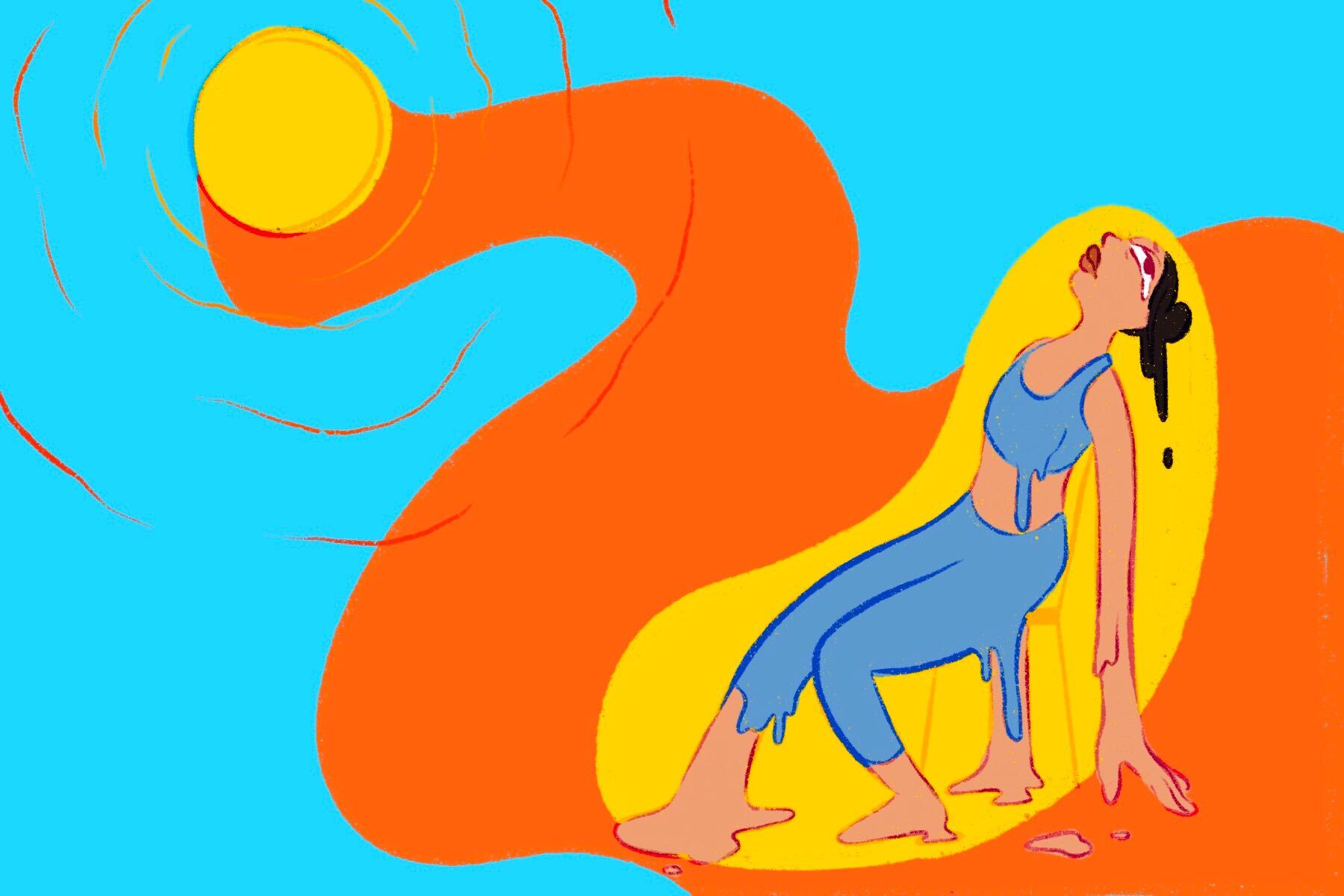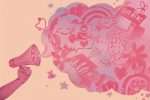Every year when summer hits, I’m lucky enough to live less than a mile away from the ocean, where the average daily highs usually don’t peak past 75 degrees Fahrenheit. Despite living so close to the sea, periods of exceedingly hot weather are common and can be dangerous. Most houses near the coast, including mine, don’t have air conditioning units, making it more difficult to cool down during a heat wave.
In mid-August, a heat wave swept across almost the entirety of California. Places not usually known for hot weather, like northern California and Santa Cruz, were hit with triple-digit temperatures. Meanwhile, Death Valley saw one of its highest temperatures ever recorded.
Separate meteorological phenomena came together to create some of the worst heat and fire conditions recorded, including the second and third largest wildfires in California’s history.
Thunderstorms started dozens of fires in the northern half of the state, which spawned tornadoes made of flames, known as “firenadoes.” Even worse, the increased use of power for air conditioning resulted in a lack of sufficient electricity, prompting rolling blackouts across the state.
The lack of proper cooling can be dangerous for people, especially high-risk groups such as the elderly, children and people with preexisting health conditions due to the possibility of heatstroke.
Unfortunately, rolling blackouts will likely continue. The National Weather Service has warned that “extreme stress on our power infrastructure may lead to power outages.” This means that even if you do have air conditioning at home, there may come a point when it won’t function.
Since my house doesn’t have air conditioning at all, I’ve had to learn to get by when extreme weather hits the coast. Here are some reminders and tips on coping with the high temperatures so you can prevent yourself and your family members from overheating.
1. Water, and Only Water
The usual recommendation is to drink eight cups of water a day. During a heat wave, make sure you’re staying hydrated. Dehydration can contribute to heatstroke, and drinking lots of water can help maintain and cool your body temperature.
Just make sure you do your best to avoid beverages such as sodas, coffee and alcoholic drinks. They’re diuretics, which are substances that promote the increased production of urine, which can increase your risk of dehydrating.
You can also cool down by dipping towels in cold water, soaking your feet or simply taking a cold shower.
2. Food
Just like how some beverages should be avoided during a heat wave, there are certain foods you should refrain from eating as well. This includes spicy food, which raises body temperature. Although the increase is short term, it can still prove to be dangerous.
Diuretic foods like mangoes, artichokes and asparagus should also be avoided. You should also try to minimize your intake of protein. It takes the body a lot of energy to break down the nutrients, and the process ends up creating a lot of heat, which can lead to overheating your body. That means eating less meat, fish, poultry and eggs, among other foods.
Try eating lighter foods that also have high water content instead, like watermelon, peaches and pineapple. Vegetables like zucchini and leafy greens are also an excellent choice. These foods are all easy for the body to digest and contain a lot of water that can help you stay hydrated during a heat wave.
3. Fans
Fans are a good stand-in for air conditioning, even when the power isn’t out. Using fans instead of air conditioning can help preserve electricity and prevent blackouts from happening in the first place. Keep fans on during the night and in the early mornings to draw in cooler air from outside.
Although fans can help cool you down, be wary of keeping them on when temperatures rocket past 99 degrees Fahrenheit. Research on the effectiveness of fans when temperatures are high isn’t clear.
The Centers for Disease Control and Prevention, the World Health Organization and the Environmental Protection Agency all advise against electric fans in high heat — particularly in conjunction with low humidity — based on “limited peer-reviewed evidence.”
Using fans in hot weather can increase health risks because they increase the work and stress that the body has to respond to in order to cool down. This is because when temperatures are high, fans are simply circulating that hot air.
4. Other Tips to Keep in Mind
Aside from watching your food and water intake and using fans to cool down, another good suggestion is to stay downstairs as much as possible if you live in a house with more than one story. Heat rises, and the temperature difference between the first and second floors can vary a lot. If your bedroom is upstairs, try sleeping downstairs to stay cool during the night.
Make sure to turn off appliances, electronics and lights if you’re not using them, as well as turn off boiler when going on holiday. Not only does it help conserve the electrical supply, even by only a little, it also helps reduce the heat buildup in the house.
It’s also a good idea to keep yourself informed on when heat waves are expected to hit, so that you can take care of errands and grocery store runs before then. Try to stay indoors as much as possible during the actual heat wave. This prevents you from overheating and, in certain places, from breathing in unhealthy air resulting from nearby fires.
During the daytime, keep the blinds, curtains and windows shut to prevent the inside of the house from warming up. At night, open up the windows so cooler air can filter in.
Above all, make sure you’re aware of the symptoms of heat sickness. Symptoms can conflict, so make sure you read up on all of them and the treatments for each one.
Heat waves are uncomfortable, but by keeping these tips in mind, hopefully, they’ll be a little less stress-inducing.
















